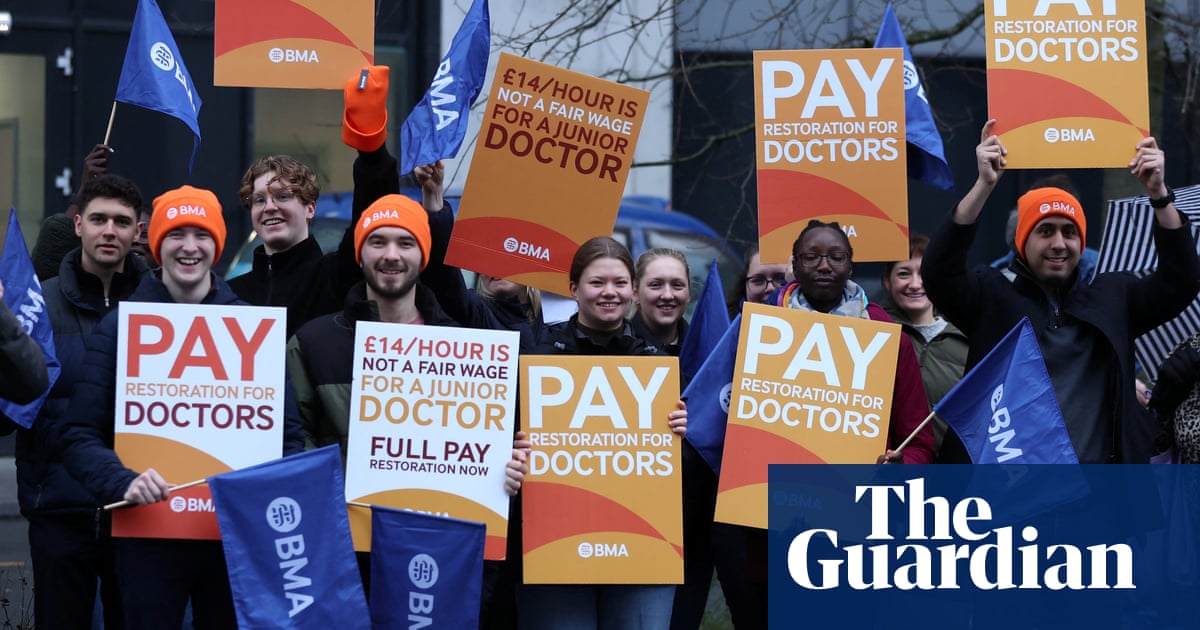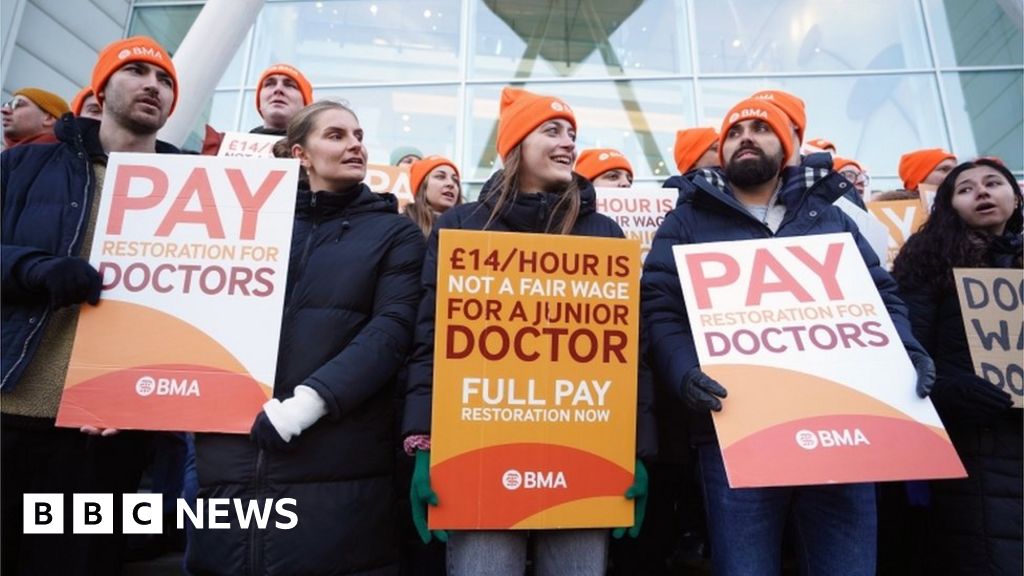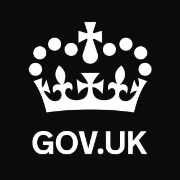Cowper’s Cut 305: Pissing off your workforce may have bad consequences

The junior doctors’ longest-yet strike ended without an evident, high-profile and widely-noticed case of serious patient harm.
This probably doesn’t mean that there wasn’t serious patient harm, of course. Ben Clover’s latest ‘London Eye’ column in Health Service Journal gives some helpful mood music about the latest strike’s effects.

There was further evidence of the ill feeling over derogation requests, with this Guardian piece summarising the tension between the parties involved.
Where do the Health Secretary and the BMA Junior Doctors Committee leadership go next?
If the sunk cost fallacy were not A Thing, then clearly they would go straight back into negotiations. Unfortunately, it very much is A Thing.
Health But Social Care Secretary Victoria Atkins’ Commons statement this week claimed that “the talks that began in November had been progressing with the BMA junior doctors committee ... were constructive, exploring a range of proposals that would improve the working lives of doctors across the NHS. I was therefore extremely disappointed when the BMA turned its back on the negotiations before they had concluded to call the damaging strikes that we face today”.

The BMA JDC leaders have been clear that these latest two rounds of strikes were called because an agreed deadline in negotiations had come and gone without a credible offer having been presented, and made repeated offers to suspend the strikes if a credible offer was forthcoming.
The rule that the Government does not negotiate while strikes are scheduled is entirely self-imposed. It is not a fact of life: it is a political choice.
Waits and measures
The latest RTT backlog data proves that Sir Issac Newton wasn’t wrong: what goes up must come down. The total RTT backlog fell for the second month in a row, albeit only slightly.
Worryingly for the Department For Health But Social Care and its wholly-owned subsidiary NHS England, 18-month breaches rose for the fourth successive month.
Urgent and emergency care performance deteriorated slightly in December (but was an improvement on the December 2022 performance). A&E ‘four hours’ performance was 69 per cent for all patients in December, compared to 65 per cent in December 2022.

Dr Rob Findlay’s upbeat analysis for HSJ is here.
The fall in Nov was not unexpected as the list generally falls in Nov, Dec and Jan, even when the list is rising overall. But the fall in Oct was unexpected and falls are bigger than expected. So what is happening? pic.twitter.com/UcHWijgh8M
— Charles Tallack (@CharlesTTHF) January 12, 2024
The Health Foundation’s Charles Tallack focuses in this Kiss thread on the impact on the data from a reduction in the number of referrals.
I wonder whether we may be seeing the first impact of the A&G policy - advice and guidance, which was part of the electoral, sorry, elective recovery programme.
Productivity debate
This is what much of the debate about our post-election spending plans is missing. NHS funding is also up by a third since 2010.
— Jeremy Hunt (@Jeremy_Hunt) January 12, 2024
The answer isn’t just more money, it has to be about productivity. If we can hit the 0.5% productivity growth increases we regularly got in the years… https://t.co/VyHGFAT2sB
Former and longest-yet Health Secretary and now Chancellor Jeremy Hunt kicked off an interesting debate on Kiss (formerly Twitter) about the importance of increasing NHS productivity.
Mr Hunt launched off from a point made by Stuart Hoddinott of the Institute For Government about how increasing NHS inputs (workforce) had not led to increased measured outputs.
Stuart’s reply thread to the Chancellor’s comments, highlighting the IfG’s excellent ‘NHS Productivity Puzzle’ report by Sam Freedman and Rachel Woolf, is well worth reading wholesale.
I found the Chancellor’s comments revealing. He is correct that if the NHS can make meaningful and sustainable productivity improvements, then things may start feeling, and indeed being, somewhat less bad and on fire everywhere.
The context is important, of course. Productivity is, at one level, easy to measure: if you reduce inputs and keep outputs the same-ish, the NHS becomes measurably more productive.
As Freedman and Woolf point out in their IfG report, “under the ONS measure, (NHS) productivity had been growing for 15 years up to 2018 but then fell in the two years preceding the pandemic.”
Anyone remember what happened to the NHS in 2018?

That’s right: it got a big “birthday”* present of more inputs - i.e. money.
[* The NHS is a health system, and not a person: it therefore doesn’t have ‘birthdays’, unless you are a complete arsehole. “Happy Birthday, the NHS!” said nobody in their right mind, anywhere, ever.]
A significant increase in inputs (money) instantly made the NHS less apparently productive, per ONS metrics.
But other things were clearly happening, too. The NHS had largely sort of just about stayed within its constrained budget growth post-2010 by the simple yet effective device of holding staff wages down well below inflation.
(Plus all those capital-to-revenue transfers, but that’s another level of complexity. It’s also why NHS estate is in such a bollocking state: “The total cost to eradicate backlog maintenance was £11.6 billion in 2022/23. This is an increase of 13.6 per cent since 2021/22.”)
You’d have to be remarkably, obnoxiously stupid not to have spotted that holding wages down in the NHS well below inflation for over a decade has had seismic consequences in terms both of morale, retention and the recent medical industrial action.
There has been another consequence, which is at once good and bad: the old airbag of staff goodwill has really and unarguably gone. The pandemic undoubtedly finished it off, because risking your life to go to work in a long-inadequately-resourced system is not all that nice, so I’m told.
The fight over the new junior doctors’ contract in 2016 was a particularly Pyrrhic victory for the then-Health Secretary and now Chancellor Jeremy Hunt, however irritating the junior doctors’ then-leadership and stunts were (which was very).
You ultimately just can’t piss your workforce off without major negative consequences for everyone involved. It’s just a fact of life. But the penny has spectacularly failed to drop on this.
Speaking of which …
MAPping a way out of the new workforce mess
The relatively new roles of medical associate professionals - from nursing associates to physician associates - have become a highly contested field. There are widely-held perceptions that this is a deliberate challenge to the established medical professions, for which regulatory and training requirements are significantly more onerous.
This isn’t new news. Diabetes national advisor Professor Partha Kar has been writing about it in his BMJ columns for some time; Nicholls, Greenhalgh and McKee followed up with this piece.
direction). Meanwhile, some PAs thought they were getting a fast track to a fully hands-on role, nearly equivalent to a doctor. Realistically, those with a PA MSc are never likely to be happy with an admin/routine role but docs are unlikely to accept the near-equivalence of 2/n
— Alison Moore (@AliJaneMoore) January 13, 2024
HSJ’s Alison Moore wrote this calm and even-handed thread on Kiss about the issue. If I understand it correctly, Alison’s daughter is a medic in training.
The underlying idea to create new roles that will support medics to work more effectively is a good one. Sadly, the process that has happened seems to enjoy very little general confidence in the medical professions.
What should have been an uncontroversial win-win to improve medics’ working lives has been grotesquely mis-handled. The antipathy and mistrust that has been created in the medical professions is tangible.

Can such things be done well? They can indeed: in my September column for Pharmaceutical Journal, I looked at all the things that had been done right to make pharmacy technicians welcomed part of that profession’s teams. The contrast between that and the currently ongoing process for new or expanded medical associate roles is striking.
Alas, the development of these associate roles is now in the remit of NHS England, since their Borg-like takeover of Health Education England. It is also in the purview of the medical royal colleges and GMC as to regulation, as this slightly mealy-mouthed DHBSC fact sheet shows.
NHS England has been making claims that physician's associate roles are “internationally recognised” (a term also being used by universities recruiting for courses). Freedom of information requests to NHS England as to the evidence on which this claim is based elicited the boilerplate reply, “we do not hold the information that you request”, followed by a long list of academic papers from various countries that use the term in very different ways.
The parties involved in implementing new or expanded medical associate professional roles will be forced back to the drawing board. It is simply a question of how soon, and of how much collateral damage gets done to a basically sensible concept en route.
It is becoming hard to avoid the conclusion that NHS England couldn’t pour piss out of a shoe, even if the instructions were written on the heel.
NAO report into variable prices paid
The latest value for money report from the National Audit Office highlighted the significant differences in the prices NHS organisations pay for kit.
Examples include bone saw blades: some hospitals paid £15 in 2022-23 while others paid £33. A portable touchscreen bladder scanner cost some hospitals £6,591 for while others paid £12,760. The price of a replacement hip ‘stem part’ varied from £258 to £490.

‘NHS Supply Chain and efficiencies in procurement’ tells us nothing new or surprising, but does helpfully remind us of an ongoing legacy of the internal market: that of trusts as organisations which are meant to compete, and jealous of their independence and autonomy. This began with the concept of NHS trusts, and was supercharged with the creation of foundation trusts.
That is the world in which the culture of current leaders was forged, and it was quite recently affirmed. Dear old Lord Lansley’s 2012 Act aimed to make choice, competition and clinical commissioning the new operating system of the NHS. That didn’t work at all, even slightly, as the past decade-and-a-bit amply confirms. Simon Stevens’ ‘Five-Year Forward View’ subverting the shit out of the 2012 Act bypassed most people who don’t read Health Policy Insight, the poor souls, but you get what you inform yourself about, don’t you?
The NHAO concludes that “NHS Supply Chain should be in a very strong negotiating position. If it can persuade as many trusts as possible to purchase as much as possible through Supply Chain it can aggregate a large majority of NHS spending power.
“NHS Supply Chain recognises that its systems and processes do not work well for all its customers and that it needs to do more to become, and demonstrate that it is, the best-value option for NHS procurement. To do this, it needs to optimise prices for customers, make ordering as straightforward as possible and deliver reliably on orders placed.
“Trusts in turn need to make the most of the purchasing efficiencies that Supply Chain offers. While NHS England (NHSE) has started to take some positive steps to encourage and, where it is able, require trusts to make better use of Supply Chain, it recognises that it could do more in some areas, such as providing clinical sponsorship and standardisation of prices.”
Mmmmmm. Optimism about the likelihood of NHS England doing sensible things: well, it’s a point of view.
Monewatch
Despite having at best a thumbnail sketch on the true facts, Mr Neidle peddles theories of nonsense to raise his public profile.
— Lady Michelle Mone (@MichelleMone) January 14, 2024
He spent his career advising huge corporate clients on UK tax avoidance and related matters so that big business could avoid paying tax!
As a member…
Everybody’s New Favourite Noble Baroness, liar, Tory peer and nominative determinista Michelle Mone has been at it again.
She’s such a character. Her consistency is a gift, and her grift is consistent.
She used her Kiss account to attempt to go after tax expert and campaigner Dan Neidle of Tax Policy Associates: the man who, alongside journalist David Conn from The Guardian, has been doing quite a bit of the heavy lifting in exposing Mone’s and her husband’s involvement in PPE Medpro, which the couple lyingly denied.

Alas for ENFNB, Neidle put all these facts about himself clearly in the public domain, in high-profile media interviews. As ‘gotcha!’s go, this isn’t one.

The noble Baroness Mone seems to have been triggered by Mr Neidle’s finding that her husband and fellow liar has a further 25 companies whose ownership has been unlawfully hidden. (Yes, that is 25 companies on top of PPE Medpro and the lying couple’s mansion in Belgravia, in both of which cases ownership was also unlawfully hidden.)
Still, we can feel sure that ENFNB will keep lying.
Oh, sorry: I meant we can feel sure that ENFNB will keep trying.
Didn’t I? Ducking autocorrect.
Recommended and required reading
Data analysis by HSJ shows general practice’s share of NHS funding has dropped to an eight-year low, and its growth has risen below the level of inflation. Ooops.
Medical journalism’s Dynamic Duo of Deb Cohen and Margaret McCartney on the claim-mongering over Inclisiran for the BMJ
Thorough Financial Times long read on the costly and controversial outsourcing of NHS mental health services provision.
Former Labour MP for Wavertree and victim of Corbyn-era anti-Semitic bullying Luciana Berger is to lead the party’s work on a cross-government strategy focused on lowering suicide rate, The Guardian reports.
Steve Black’s latest HSJ ‘Mythbuster’ column is, once again, very good.
Welcome back to Andrew Taylor, who is to lead NHS England’s replacement for the Co-Operation And Competition Panel.
FT piece (tangentially) on what the NHS must learn from the Post Office Horizon scandal.
The German public health system plans to stop funding homeopathy, The Times reports. The head of the royal medical household will be outraged.
Julian Patterson’s latest HSJ column is a beaut: lovely, smashing, super.





